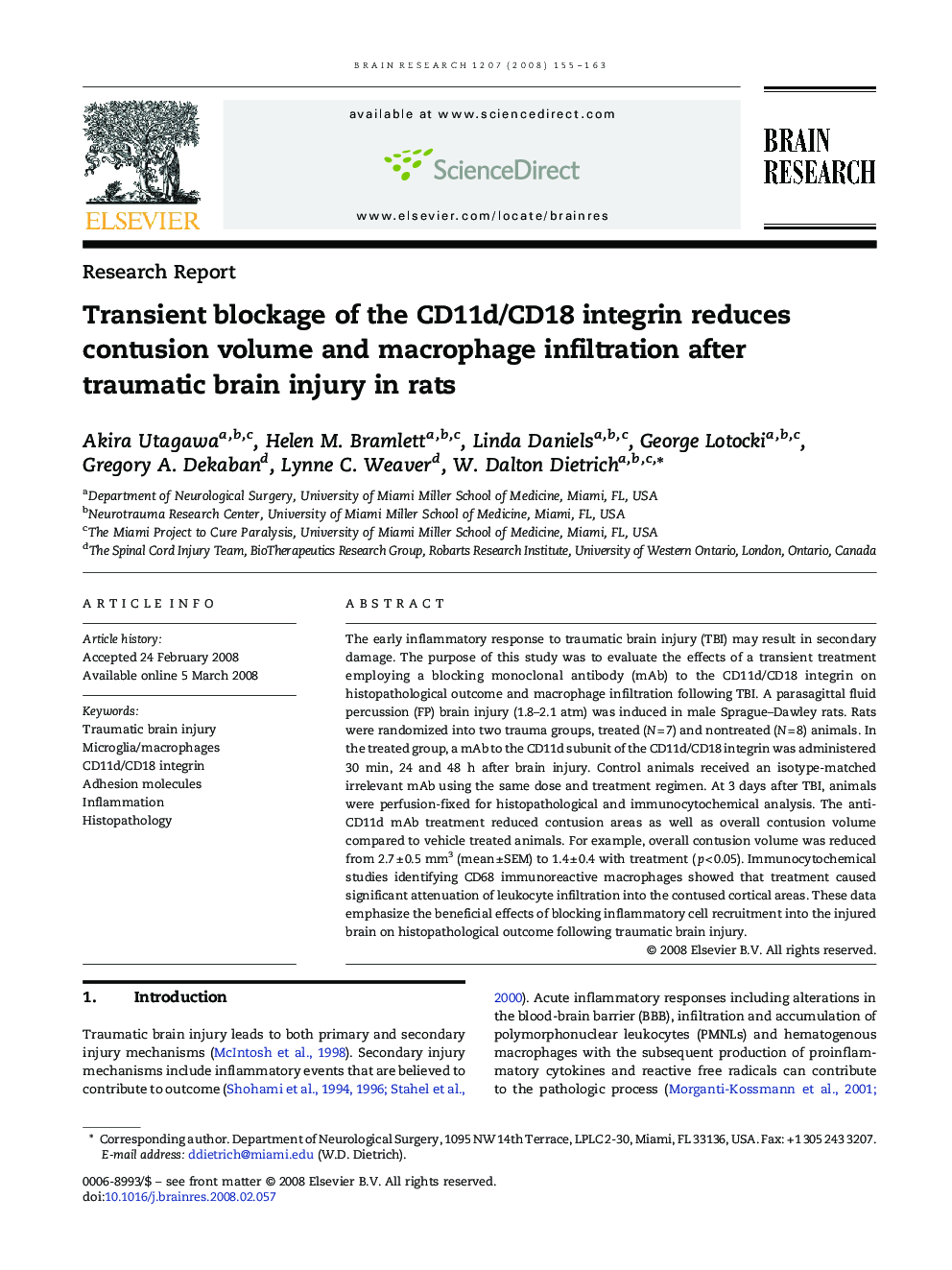| Article ID | Journal | Published Year | Pages | File Type |
|---|---|---|---|---|
| 4329906 | Brain Research | 2008 | 9 Pages |
The early inflammatory response to traumatic brain injury (TBI) may result in secondary damage. The purpose of this study was to evaluate the effects of a transient treatment employing a blocking monoclonal antibody (mAb) to the CD11d/CD18 integrin on histopathological outcome and macrophage infiltration following TBI. A parasagittal fluid percussion (FP) brain injury (1.8–2.1 atm) was induced in male Sprague–Dawley rats. Rats were randomized into two trauma groups, treated (N = 7) and nontreated (N = 8) animals. In the treated group, a mAb to the CD11d subunit of the CD11d/CD18 integrin was administered 30 min, 24 and 48 h after brain injury. Control animals received an isotype-matched irrelevant mAb using the same dose and treatment regimen. At 3 days after TBI, animals were perfusion-fixed for histopathological and immunocytochemical analysis. The anti-CD11d mAb treatment reduced contusion areas as well as overall contusion volume compared to vehicle treated animals. For example, overall contusion volume was reduced from 2.7 ± 0.5 mm3 (mean ± SEM) to 1.4 ± 0.4 with treatment (p < 0.05). Immunocytochemical studies identifying CD68 immunoreactive macrophages showed that treatment caused significant attenuation of leukocyte infiltration into the contused cortical areas. These data emphasize the beneficial effects of blocking inflammatory cell recruitment into the injured brain on histopathological outcome following traumatic brain injury.
